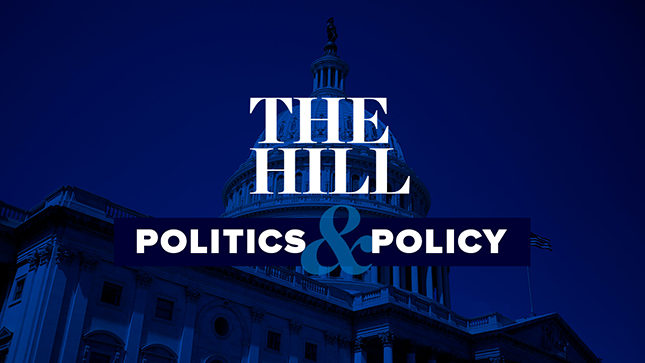March for Our Lives, the student group that held nationwide rallies in the spring to decry school shootings, recently began a voter registration campaign across the country this summer. But laws restricting free speech will make them sweat a lot harder than they should.
Using the slogan and hashtag “#VoteThemOut,” the movement demands change in the most direct manner possible: by voting. But in doing so, the students will run into an elaborate maze of tax and campaign finance laws. These regulations stymie grassroots advocacy groups and effectively censor how they can speak. As March for Our Lives tries to force a debate over our nation’s gun laws, we should also reexamine how our nation’s speech laws impede such debates.
One set of restrictions comes from the Internal Revenue Service, which regulates speech by nonprofit advocacy groups, such as March for Our Lives, that are formed under Section 501(c)(4) of the tax code. The IRS prohibits such groups from being “primarily engaged” in what it calls “political campaign intervention.”
The IRS relies on an extremely vague and broad “facts and circumstances” test to determine “political campaign intervention.” Under this standard, the agency may apply unspecified factors that it has not publicly disclosed in advance. The IRS warns that voter registration efforts that “have the effect of favoring a candidate or group of candidates [] will constitute [political campaign] intervention.” In fact, the IRS denied 501(c)(4) status to an organization similar to March for Our Lives because the group’s plan to target voter registration to specific geographic areas or individuals that favor the group’s causes was campaign intervention.
All of which brings us to the students trying to change the gun laws through voter registration. Expensive attorneys, likely paid for by wealthy donors, appear to have carefully scrubbed the March for Our Lives website, which avoids any overt appeals to vote for specific candidates. But all the wordsmithing in the world cannot erase the group’s underlying intent. And that appears to be changing the gun laws by voting for or against certain candidates based on their stance on gun control. After all, whom does “Them” refer to in “#VoteThemOut,” if not to incumbents who oppose gun control?
It is also likely no coincidence that March for Our Lives kicked off its voter registration campaign in Chicago, a city infamous for gun violence. It also has planned stops in Connecticut, Florida, and Texas, sites of the Newtown, Parkland, and Santa Fe school shootings, respectively. Nor is it likely a coincidence that the group focuses on registering young people who are anxious about school shootings. All this is logical for a group that aims to turn out voters who favor candidates that support stricter gun laws. Yet, the IRS finds something nefarious in targeting voter registration campaigns in this manner.
As if the tax laws were not bad enough, the campaign finance laws add yet another layer of obstacles for groups like March for Our Lives. Thanks in no small part to certain commissioners at the Federal Election Commission, that federal agency is unlikely to stand in the way of grassroots activities. But state laws and regulatory agencies are a different matter. When March for Our Lives speaks on both federal and state gun laws, it risks getting entangled in a web of state speech laws.
For example, take Connecticut. There, any expenditure “made to promote the success or defeat of any candidate” could be regulated under the state’s campaign finance laws. The State Election Enforcement Commission, an agency that is as aggressive as its name suggests, enforces these laws. If March for Our Lives’ voter registration efforts in Connecticut are deemed to “promote the success or defeat of any candidate” under this broad standard, the group could be required to file burdensome reports and publicly identify its donors. Given the rancor surrounding the gun control issue, the prospect of being publicly outed and harassed could turn off many potential donors.
Laws on guns, immigration, abortion, and many other hotly debated issues are often tied to candidates. But that does not mean groups discussing those issues should be regulated as political campaign committees. We should make it easier, not harder, for groups like March for Our Lives to speak out during the election season. Speech laws that inhibit such participation are anathema to our democracy.
This post originally ran in The Hill on June 27th 2018.














